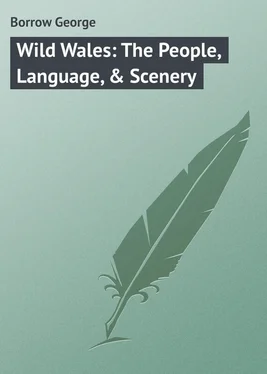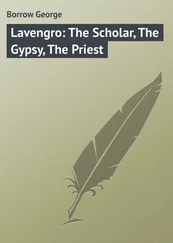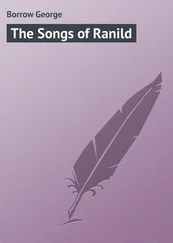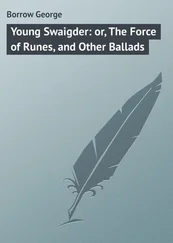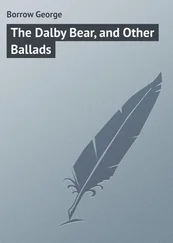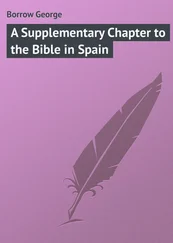George Borrow - Wild Wales - The People, Language, & Scenery
Здесь есть возможность читать онлайн «George Borrow - Wild Wales - The People, Language, & Scenery» — ознакомительный отрывок электронной книги совершенно бесплатно, а после прочтения отрывка купить полную версию. В некоторых случаях можно слушать аудио, скачать через торрент в формате fb2 и присутствует краткое содержание. Жанр: foreign_prose, Путешествия и география, на английском языке. Описание произведения, (предисловие) а так же отзывы посетителей доступны на портале библиотеки ЛибКат.
- Название:Wild Wales: The People, Language, & Scenery
- Автор:
- Жанр:
- Год:неизвестен
- ISBN:нет данных
- Рейтинг книги:5 / 5. Голосов: 1
-
Избранное:Добавить в избранное
- Отзывы:
-
Ваша оценка:
- 100
- 1
- 2
- 3
- 4
- 5
Wild Wales: The People, Language, & Scenery: краткое содержание, описание и аннотация
Предлагаем к чтению аннотацию, описание, краткое содержание или предисловие (зависит от того, что написал сам автор книги «Wild Wales: The People, Language, & Scenery»). Если вы не нашли необходимую информацию о книге — напишите в комментариях, мы постараемся отыскать её.
Wild Wales: The People, Language, & Scenery — читать онлайн ознакомительный отрывок
Ниже представлен текст книги, разбитый по страницам. Система сохранения места последней прочитанной страницы, позволяет с удобством читать онлайн бесплатно книгу «Wild Wales: The People, Language, & Scenery», без необходимости каждый раз заново искать на чём Вы остановились. Поставьте закладку, и сможете в любой момент перейти на страницу, на которой закончили чтение.
Интервал:
Закладка:
We returned to the inn and dined. The duck was capital, and I asked John Jones if he had ever tasted a better. “Never, sir,” said he, “for to tell you the truth, I never tasted a duck before.” “Rather singular,” said I. “What that I should not have tasted duck? O, sir, the singularity is, that I should now be tasting duck. Duck in Wales, sir, is not fare for poor weavers. This is the first duck I ever tasted, and though I never taste another, as I probably never shall, I may consider myself a fortunate weaver, for I can now say I have tasted duck once in my life. Few weavers in Wales are ever able to say as much.”
CHAPTER XVI
Baptist Tomb-Stone – The Toll-Bar – Rebecca – The Guitar.
The sun was fast declining as we left Ruthyn. We retraced our steps across the fields. When we came to the Baptist chapel I got over the wall of the little yard to look at the gravestones. There were only three. The inscriptions upon them were all in Welsh. The following stanza was on the stone of Jane, the daughter of Elizabeth Williams, who died on the second of May, 1843: —
“Er myn’d i’r oerllyd annedd
Dros dymher hir i orwedd,
Cwyd i’r lan o’r gwely bridd
Ac hyfryd fydd ei hagwedd,”
which is
“Though thou art gone to dwelling cold,
To lie in mould for many a year,
Thou shalt, at length, from earthy bed,
Uplift thy head to blissful sphere.”
As we went along I stopped to gaze at a singular-looking hill forming part of the mountain range on the east. I asked John Jones what its name was, but he did not know. As we were standing talking about it, a lady came up from the direction in which our course lay. John Jones, touching his hat to her, said:
“Madam, this gwr boneddig wishes to know the name of that moel; perhaps you can tell him.”
“Its name is Moel Agrik,” said the lady, addressing me in English.
“Does that mean Agricola’s hill?” said I.
“It does,” said she; “and there is a tradition that the Roman general Agricola, when he invaded these parts, pitched his camp on that moel. The hill is spoken of by Pennant.”
“Thank you, madam,” said I; “perhaps you can tell me the name of the delightful grounds in which we stand, supposing they have a name.”
“They are called Oaklands,” said the lady.
“A very proper name,” said I, “for there are plenty of oaks growing about. But why are they called by a Saxon name, for Oaklands is Saxon.”
“Because,” said the lady, “when the grounds were first planted with trees they belonged to an English family.”
“Thank you,” said I, and, taking off my hat, I departed with my guide. I asked him her name, but he could not tell me. Before she was out of sight, however, we met a labourer, of whom John Jones inquired her name.
“Her name is W – s,” said the man, “and a good lady she is.”
“Is she Welsh?” said I.
“Pure Welsh, master,” said the man. “Purer Welsh flesh and blood need not be.”
Nothing farther worth relating occurred till we reached the toll-bar at the head of the hen ffordd, by which time the sun was almost gone down. We found the master of the gate, his wife, and son seated on a bench before the door. The woman had a large book on her lap, in which she was reading by the last light of the departing orb. I gave the group the seal of the evening in English, which they all returned, the woman looking up from her book.
“Is that volume the Bible?” said I.
“It is, sir,” said the woman.
“May I look at it?” said I.
“Certainly,” said the woman, and placed the book in my hand. It was a magnificent Welsh Bible, but without the title-page.
“That book must be a great comfort to you,” said I to her.
“Very great,” said she. “I know not what we should do without it in the long winter evenings.”
“Of what faith are you?” said I.
“We are Methodists,” she replied.
“Then you are of the same faith as my friend here,” said I.
“Yes, yes,” said she, “we are aware of that. We all know honest John Jones.”
After we had left the gate I asked John Jones whether he had ever heard of Rebecca of the toll-gates.
“O, yes,” said he; “I have heard of that chieftainess.”
“And who was she?” said I.
“I cannot say, sir: I never saw her, nor any one who had seen her. Some say that there were a hundred Rebeccas, and all of them men dressed in women’s clothes, who went about at night, at the head of bands to break the gates. Ah, sir, something of the kind was almost necessary at that time. I am a friend of peace, sir; no head-breaker, house-breaker, nor gate-breaker, but I can hardly blame what was done at that time, under the name of Rebecca. You have no idea how the poor Welsh were oppressed by those gates, aye, and the rich too. The little people and farmers could not carry their produce to market owing to the exactions at the gates, which devoured all the profit and sometimes more. So that the markets were not half supplied, and people with money could frequently not get what they wanted. Complaints were made to government, which not being attended to, Rebecca and her byddinion made their appearance at night, and broke the gates to pieces with sledge-hammers, and everybody said it was gallant work, everybody save the keepers of the gates and the proprietors. Not only the poor, but the rich said so. Aye, and I have heard that many a fine young gentleman had a hand in the work, and went about at night at the head of a band dressed as Rebecca. Well, sir, those breakings were acts of violence, I don’t deny, but they did good, for the system is altered; such impositions are no longer practised at gates as were before the time of Rebecca.”
“Were any people ever taken up and punished for those nocturnal breakings?” said I.
“No, sir; and I have heard say that nobody’s being taken up was a proof that the rich approved of the work and had a hand in it.”
Night had come on by the time we reached the foot of the huge hills we had crossed in the morning. We toiled up the ascent, and after crossing the level ground on the top, plunged down the bwlch between walking and running, occasionally stumbling, for we were nearly in complete darkness, and the bwlch was steep and stony. We more than once passed people who gave us the n’s da, the hissing night salutation of the Welsh. At length I saw the abbey looming amidst the darkness, and John Jones said that we were just above the fountain. We descended, and putting my head down, I drank greedily of the dwr santaidd, my guide following my example. We then proceeded on our way, and in about half-an-hour reached Llangollen. I took John Jones home with me. We had a cheerful cup of tea. Henrietta played on the guitar, and sang a Spanish song, to the great delight of John Jones, who at about ten o’clock departed contented and happy to his own dwelling.
CHAPTER XVII
John Jones and his Bundle – A Good Lady – The Irishman’s Dingle – Ab Gwilym and the Mist – The Kitchen – The Two Individuals – The Horse-Dealer – I can manage him – The Mist again.
The following day was gloomy. In the evening John Jones made his appearance with a bundle under his arm, and an umbrella in his hand.
“Sir,” said he, “I am going across the mountain with a piece of weaving work, for the man on the other side, who employs me. Perhaps you would like to go with me, as you are fond of walking.”
“I suppose,” said I, “you wish to have my company for fear of meeting Gwyddelians on the hill.”
John smiled.
“Well, sir,” said he, “if I do meet them I would sooner be with company than without. But I dare venture by myself, trusting in the Man on High, and perhaps I do wrong to ask you to go, as you must be tired with your walk of yesterday.”
Читать дальшеИнтервал:
Закладка:
Похожие книги на «Wild Wales: The People, Language, & Scenery»
Представляем Вашему вниманию похожие книги на «Wild Wales: The People, Language, & Scenery» списком для выбора. Мы отобрали схожую по названию и смыслу литературу в надежде предоставить читателям больше вариантов отыскать новые, интересные, ещё непрочитанные произведения.
Обсуждение, отзывы о книге «Wild Wales: The People, Language, & Scenery» и просто собственные мнения читателей. Оставьте ваши комментарии, напишите, что Вы думаете о произведении, его смысле или главных героях. Укажите что конкретно понравилось, а что нет, и почему Вы так считаете.
